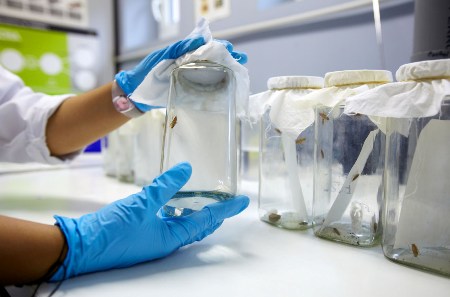The INSEPLATEX project aims to develop technologies for providing insecticidal and repellent effects to different types of textiles and plastics. Tecnalia, Leitat and Aimplas are participating in this project, which is being led by Tecnalia. The Spanish Ministry of Science and Innovation is co-funding the INSEPLATEX project.
 Tecnalia-Led Project Seeks Plastics and Textiles with Repellents
Tecnalia-Led Project Seeks Plastics and Textiles with Repellents
The project strives to provide enhanced insecticidal and repellent effects against urban pests. It will monitor, specifically, the service life and the activation of the biocidal properties of the technology in the textile and plastic products. Such products may find use in critical situations such as earthquakes, humanitarian crises, refugee camps, and for use by the military, forest workers and volunteers.
The Leitat centre is working on incorporating specific biocides into certain types of textiles, while Tecnalia and Aimplas are working on incorporating biocides into plastics. After incorporation, the materials are tested against the main species belonging to the urban pest category.
The Tecnalia Biologists and Entomologists are conducting laboratory tests on the products using live specimens. Tecnalia’s biological and insectary laboratory equipment are playing a major role in conducting the bioassays.
For the testing of the active biocidal substances, the laboratories are applying the European Union Directive on Biocides. They are following the World Health Organization’s recommendation for testing the repellents and insecticides. Tecnalia also creates and validates experimental designs when required.
The results of the bioassays determine the appropriate uses for the textile and plastic bio-products.